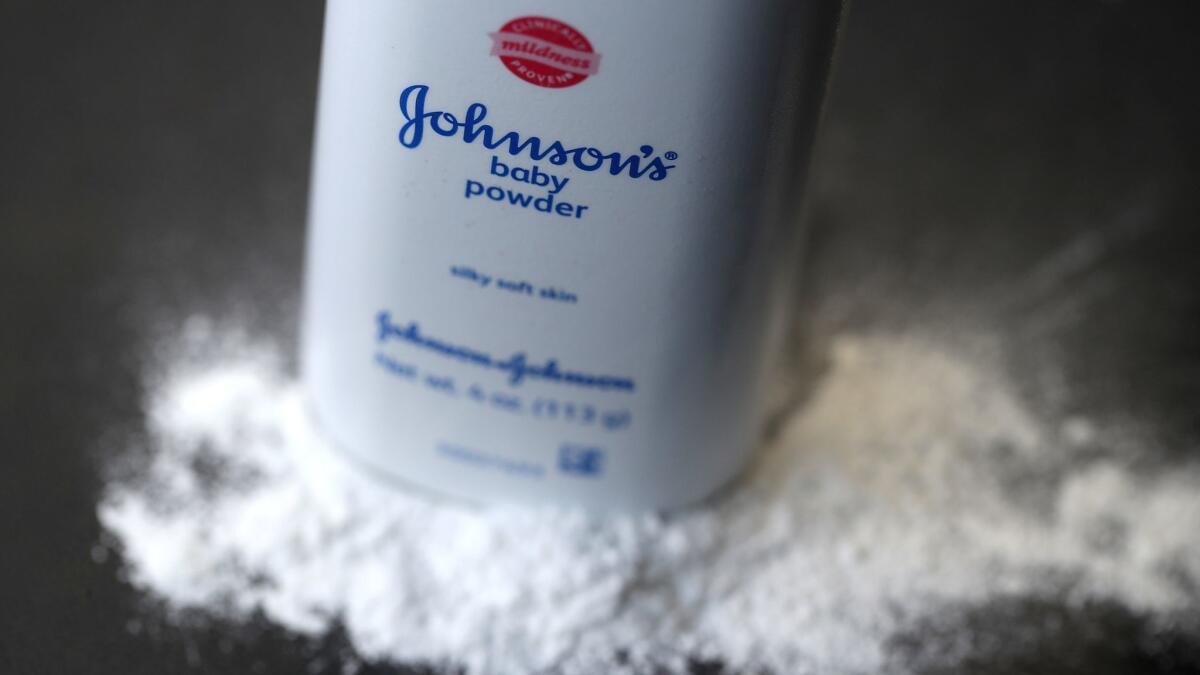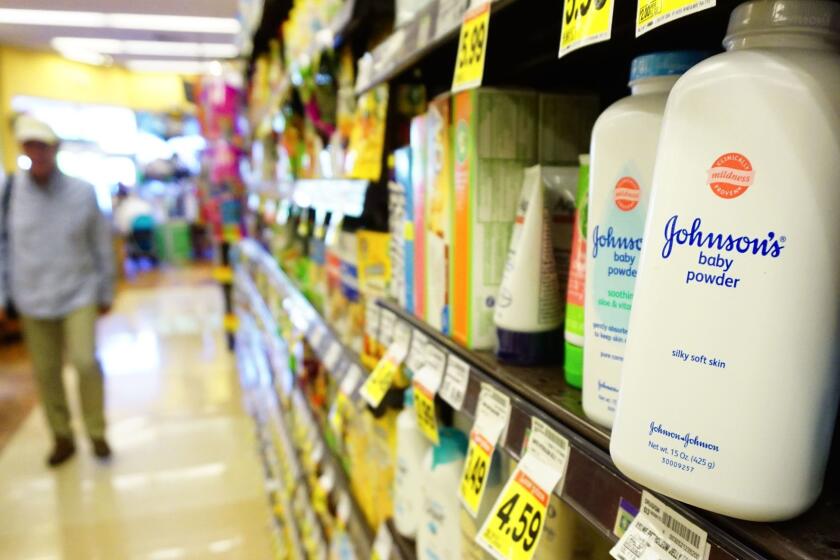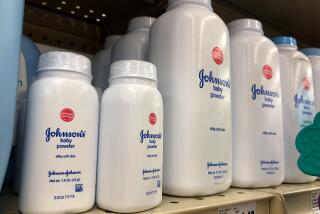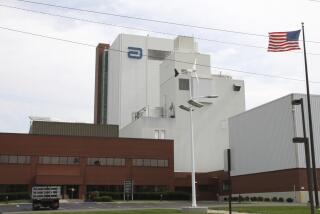Johnson & Johnson discontinues talc baby powder in U.S. and Canada

Johnson & Johnson discontinued its legacy talc-based baby-powder products in the U.S. and Canada after thousands of suits alleging asbestos contamination led to a decline in sales.
The healthcare giant said Tuesday that it had stopped shipping hundreds of talc-based items in the U.S. and Canada after coming to a “commercial decision” to discontinue them. J&J will wind down sales in those markets over the coming months, said Kathleen Widmer, chairman of the company’s North America consumer unit. All existing inventory will continue to be sold through retailers until supplies run out, she said.
J&J has faced lawsuits since 2014 accusing it of hiding cancer risks tied to its talc-based version of baby powder. Juries across the U.S. have hit the company with billions of dollars in actual and punishment damages over its handling of the product. J&J has gotten many of those verdicts reduced or wiped out on appeal.
A new study says talc doesn’t cause ovarian cancer
J&J’s cornstarch-based baby powder, which has been on the market since 1980, will continue to be sold in the U.S. and Canada. Widmer said three-quarters of its U.S. baby-powder customers use the cornstarch product, while a quarter rely on the talc-based product. Outside the U.S. those numbers are reversed, Widmer said, and the talc-based product will continue to be distributed abroad.
Johnson’s Baby Powder accounts for less than 1% of the company’s U.S. consumer-health revenue. It has seen a decline in sales over the last few years as consumer habits have changed, Widmer said. In a statement, the company blamed “misinformation around the safety of the product and a constant barrage of litigation advertising” for the drop in demand.
Talcum powder has long been a mainstay of baby products because the mineral keeps skin dry and prevents diaper rash. Talc mines, however, can also yield asbestos, a mineral once used in products such as building insulation. Some companies have found cornstarch can offer the same benefits as talc without the asbestos risk.
Yanking its talc-based baby powder off the market could limit the number of cancer lawsuits the 127-year-old product generates each year. J&J officials said last month that they’d had a 15% increase in the number of suits alleging baby powder causes various kinds of cancer.
Still, J&J “remains steadfastly confident in the safety of talc-based Johnson’s Baby Powder,” the company said in a statement. “We will continue to vigorously defend the product, its safety, and the unfounded allegations against it and the company in the courtroom.” The statement noted that all verdicts against it have been overturned through the appeals process.
More to Read
Inside the business of entertainment
The Wide Shot brings you news, analysis and insights on everything from streaming wars to production — and what it all means for the future.
You may occasionally receive promotional content from the Los Angeles Times.











